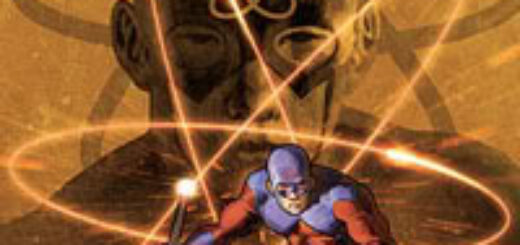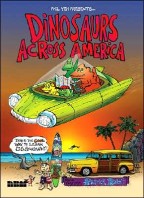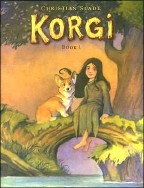The Weekly Haul: Reviews for March 6, 2008
Welcome to the inaugural Weekly Haul, a collection of reviews of this week’s comic book issues brought to you by none other than ComicMix. It was a big week for floppies, with four new series worth giving a read and several old standbys seeing new developments. Without further ado, let’s get to the reviews.
 Book of the Week: The All-New Atom #21 — Anyone wondering whether this title would keep being a must-read after Gail Simone stepped aside as writer and Rick Remender took the reins can go ahead and relax. The All-New Atom is better than ever in this issue, which takes the classic archetypal conflict of man vs. himself and gives it one heck of a twist.
Book of the Week: The All-New Atom #21 — Anyone wondering whether this title would keep being a must-read after Gail Simone stepped aside as writer and Rick Remender took the reins can go ahead and relax. The All-New Atom is better than ever in this issue, which takes the classic archetypal conflict of man vs. himself and gives it one heck of a twist.
While trying to figure out if Ray Palmer’s experiments were responsible for Ivy Town’s craziness, the new Atom, Ryan, shrinks down to explore a sample of his own blood (sounds weird, but it makes sense). Remender makes that effort alone a pulse-pounder, but then Ryan finds some terrible infestation in his blood and all hell breaks loose.
While still a bit text heavy, the series remains just as zany as under Simone’s watch and is a bit more focused. Good stuff all the way around.
Runners Up:
Logan #1 — Brian K. Vaughan and Eduardo Risso taking on the most famous mutant is pretty well guaranteed to be a quality read. And while this issue is far from mind-blowing, it’s a far superior story of Wolverine getting his memory back than anything we’ve seen in Wolverine: Origins
. The downside is Marvel once again arbitrarily slapping a $3.99 price tag on a book for no good reason.
Northlanders #4 — This is the classic "from bad to worse" part of the story, but Brian Wood pulls it off well. The best quality of this vikings series is how Wood gives depth to his characters and doesn’t let any of them fall too far into stereotypical roles of heroes and villains. Life is complicated, especially for blood-hungry Scandinavians.
Omega the Unknown #6 — For the most touching tribute yet to the recently deceased Steve Gerber, this issue merits a purchase. It’s also another darn fine bit of comics by Jonathan Lethem and Farel Dalrymple. After all the action of the past few issues, this one serves as a bit of set up to the coming battle with the robots before culminating with a well done metatextual flourish.



 Today I’ve got three books that either are for kids or look like they should be, so, if any of you are allergic to greasy kids stuff, just move on to the next post.
Today I’ve got three books that either are for kids or look like they should be, so, if any of you are allergic to greasy kids stuff, just move on to the next post.
 These are the Days of Awe. While that sounds like a World Wrestling event, it is, in fact, the ten-day period between Rosh Hashonah (New Year) and Yom Kippur (the Day of Atonement). It’s a time to consider the previous twelve months, make amends, and resolve to do better in the year ahead.
These are the Days of Awe. While that sounds like a World Wrestling event, it is, in fact, the ten-day period between Rosh Hashonah (New Year) and Yom Kippur (the Day of Atonement). It’s a time to consider the previous twelve months, make amends, and resolve to do better in the year ahead. I should warn you about these link-lists: Mondays tend to be longer than usual (since there’s a lot of content that goes up on the weekend, or early on Monday), and the beginning of the month tends to be longer than usual. Since we’re just past both of those things, this is going to be a really long one…
I should warn you about these link-lists: Mondays tend to be longer than usual (since there’s a lot of content that goes up on the weekend, or early on Monday), and the beginning of the month tends to be longer than usual. Since we’re just past both of those things, this is going to be a really long one…









